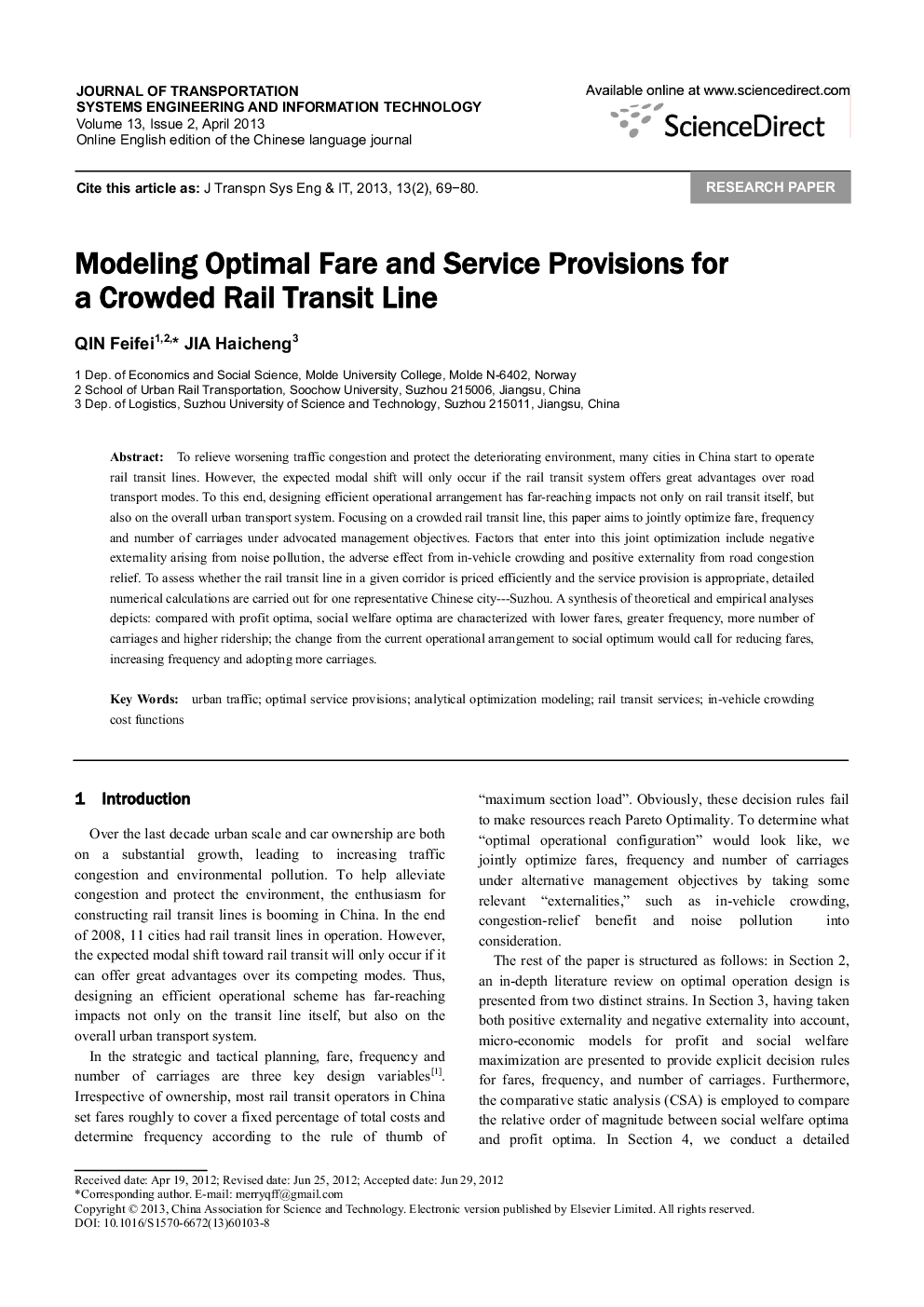| Article ID | Journal | Published Year | Pages | File Type |
|---|---|---|---|---|
| 108437 | Journal of Transportation Systems Engineering and Information Technology | 2013 | 12 Pages |
To relieve worsening traffic congestion and protect the deteriorating environment, many cities in China start to operate rail transit lines. However, the expected modal shift will only occur if the rail transit system offers great advantages over road transport modes. To this end, designing efficient operational arrangement has far-reaching impacts not only on rail transit itself, but also on the overall urban transport system. Focusing on a crowded rail transit line, this paper aims to jointly optimize fare, frequency and number of carriages under advocated management objectives. Factors that enter into this joint optimization include negative externality arising from noise pollution, the adverse effect from in-vehicle crowding and positive externality from road congestion relief. To assess whether the rail transit line in a given corridor is priced efficiently and the service provision is appropriate, detailed numerical calculations are carried out for one representative Chinese city—Suzhou. A synthesis of theoretical and empirical analyses depicts: compared with profit optima, social welfare optima are characterized with lower fares, greater frequency, more number of carriages and higher ridership; the change from the current operational arrangement to social optimum would call for reducing fares, increasing frequency and adopting more carriages.
摘要为缓解日益严重的交通拥堵及其带来的环境问题,中国很多城市开始发展轨道交通系统。但是轨道交通能否达到预期的分担率还取决于其相对于路面交通方式是否具有明显的优势。有效的运行管理系统不仅有利于轨道交通的建设与发展,也有利于提升整个城市交通系统的运行效率。针对拥挤线路,在一定的管理目标约束下,本文建立了票价、发车频率和车厢数的优化模型。模型还考虑了负外部性的噪声污染因素、车内拥挤度的反作用以及正外部性的缓解道路拥挤因素。选取苏州市为例,详细说明了某运输通道下轨道交通线路定价的有效性和服务供应的合理性的评价方法。理论与实例综合分析表明,与经济效益最大化相比,社会效益最大化的需求为低票价、多车厢数和高载客率。从现行的运行管理模式向社会效益最优转化需要降低票价、增大发车频次并增加车厢数。
